Embark on cultural tours in Europe, where history, art, and tradition intertwine to create an unforgettable tapestry of experiences. From the cobblestone streets of medieval towns to the grand halls of world-renowned museums, Europe offers a kaleidoscope of cultural wonders that beckon travelers to immerse themselves in the continent’s rich heritage.
From the ruins of ancient civilizations to the vibrant street art of modern cities, Europe’s cultural landscape is a testament to the creativity and diversity that have shaped its history. Whether you seek to trace the footsteps of great thinkers and artists or simply soak up the local atmosphere, cultural tours in Europe promise an enriching and unforgettable journey.
Cultural Diversity in Europe

Europe is a continent with a rich and diverse cultural heritage. From the ancient ruins of Greece and Rome to the vibrant cities of Paris and London, Europe is home to a vast array of traditions, customs, and languages. This cultural diversity is reflected in the continent’s many iconic cultural landmarks, such as the Eiffel Tower, the Colosseum, and the Mona Lisa.
Historical Monuments
Europe is home to some of the world’s most famous historical monuments. These monuments include ancient ruins, medieval castles, and Renaissance palaces. They offer a glimpse into the continent’s rich history and architectural achievements.
- The Colosseum in Rome, Italy, is an ancient amphitheater that was used for gladiatorial contests and other public spectacles.
- The Eiffel Tower in Paris, France, is a wrought iron lattice tower that was built for the 1889 World’s Fair.
- The Palace of Versailles in Versailles, France, is a former royal palace that is now a museum.
Museums
Europe is also home to some of the world’s best museums. These museums house collections of art, history, and science from around the world. They offer a great way to learn about different cultures and civilizations.
- The Louvre Museum in Paris, France, is home to the Mona Lisa and other famous works of art.
- The British Museum in London, England, is one of the world’s largest and most comprehensive museums.
- The Vatican Museums in Vatican City, are home to a vast collection of art and artifacts from the Vatican’s history.
Art Galleries, Cultural tours in Europe
Europe is also home to some of the world’s best art galleries. These galleries feature works of art from all over the world, from ancient masterpieces to contemporary works. They offer a great way to learn about different art styles and movements.
- The Uffizi Gallery in Florence, Italy, is home to a collection of Renaissance art.
- The Tate Modern in London, England, is a modern art museum that features works by artists such as Pablo Picasso and Andy Warhol.
- The Prado Museum in Madrid, Spain, is home to a collection of Spanish art from the Middle Ages to the present day.
Types of Cultural Tours in Europe
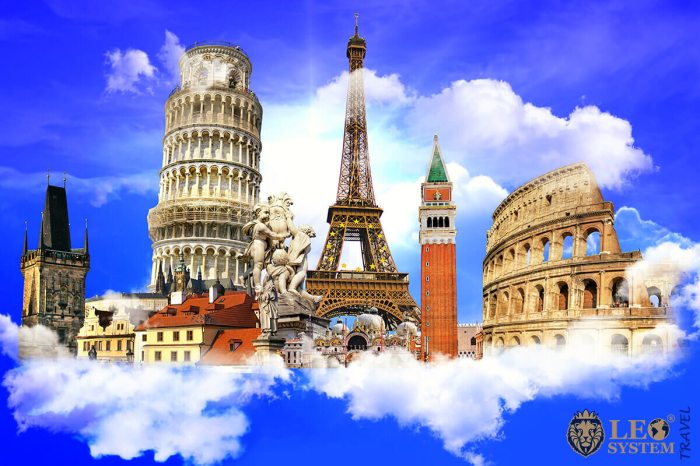
Cultural tours in Europe offer a diverse range of experiences, each with its own advantages and disadvantages. The type of tour you choose will depend on your interests, budget, and travel style.
Guided Tours
Guided tours are led by a knowledgeable tour guide who provides insights and commentary on the sights you visit. They offer a structured and informative experience, ensuring you don’t miss any important details. Guided tours can be customized to suit your interests and time constraints.
Cultural tours in Europe offer a captivating blend of history, art, and architecture. However, if you seek a respite from the bustling streets, consider indulging in the tranquility of luxury beach resorts. These idyllic havens offer pristine shores, indulgent amenities, and a chance to rejuvenate amidst the coastal charm.
Upon your return, delve once more into the vibrant cultural tapestry that Europe has to offer, enriching your journey with a harmonious balance of exploration and relaxation.
Advantages:
To explore Europe’s rich heritage and vibrant cities, cultural tours offer an immersive experience. Planning such a trip requires careful budgeting. Use our travel budget calculator to estimate expenses like flights, accommodation, and activities. This tool helps you plan a memorable cultural tour in Europe that aligns with your financial goals.
- Structured and informative experience
- Learn from a knowledgeable tour guide
- Hassle-free and convenient
Disadvantages:
- Less flexibility compared to self-guided tours
- Can be more expensive
- May not be suitable for those who prefer to explore at their own pace
Self-Guided Tours
Self-guided tours allow you to explore at your own pace and customize your itinerary. You can choose which sights to visit and how much time to spend at each one. Self-guided tours are often more affordable than guided tours.
Advantages:
- Flexibility and personalization
- More affordable
- Suitable for independent travelers
Disadvantages:
- Less informative than guided tours
- Can be overwhelming for first-time travelers
- May require more planning and research
Immersive Experiences
Immersive experiences take cultural tours to the next level by allowing you to fully engage with the local culture. This can involve participating in traditional activities, learning a new language, or staying with a local family.
Advantages:
- Authentic and unforgettable experience
- Gain a deeper understanding of the local culture
- Create lasting memories
Disadvantages:
- Can be more expensive
- May require more time and planning
- May not be suitable for everyone
Popular Cultural Destinations in Europe
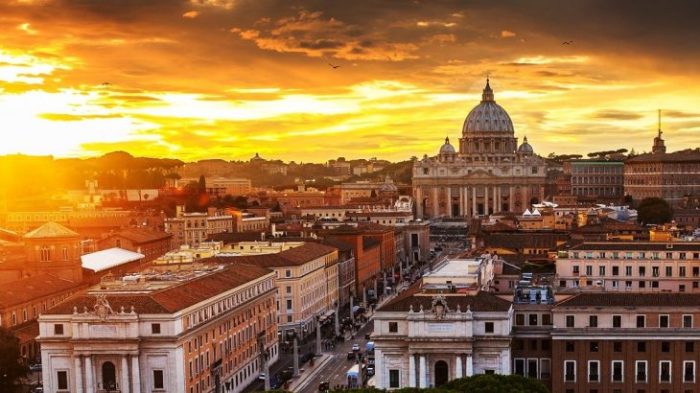
Europe is a treasure trove of cultural diversity, with each city and region boasting unique traditions, art, and architecture. Here is a selection of popular cultural destinations in Europe that offer an immersive experience into the continent’s rich heritage.
City, Country, Key Cultural Attractions, and Brief Description
| City | Country | Key Cultural Attractions | Brief Description |
|---|---|---|---|
| London | United Kingdom | – British Museum – Tate Modern – National Gallery |
London is a vibrant cultural hub with world-renowned museums, art galleries, and theaters. The city is home to iconic landmarks such as Buckingham Palace and the Tower of London, as well as a diverse culinary scene. |
| Paris | France | – Louvre Museum – Musée d’Orsay – Notre Dame Cathedral |
Paris is known for its romantic atmosphere and iconic landmarks. The city is a center for art, fashion, and cuisine, with a wealth of museums, galleries, and historic monuments to explore. |
| Rome | Italy | – Colosseum – Vatican City – Trevi Fountain |
Rome is an ancient city steeped in history and culture. It is home to some of the world’s most iconic landmarks, including the Colosseum, the Roman Forum, and the Vatican City. |
| Vienna | Austria | – Schönbrunn Palace – Hofburg Palace – Vienna State Opera |
Vienna is a city of music and culture. It is home to world-renowned opera houses, concert halls, and museums. The city’s rich musical heritage includes the works of Mozart, Beethoven, and Schubert. |
Planning a Cultural Tour in Europe
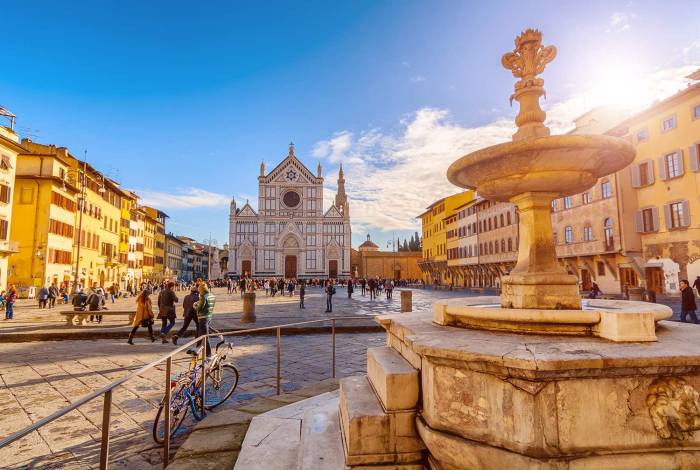
Planning a cultural tour in Europe can be an enriching and unforgettable experience. Follow these steps to ensure a seamless and enjoyable journey:
Choosing a Destination
Europe is a melting pot of cultures, each with unique traditions, art, and architecture. Consider your interests and preferences when selecting a destination. Research different countries and cities to identify those that align with your cultural aspirations.
Selecting a Tour Operator
Tour operators offer guided tours that cater to specific cultural interests. Explore various options and read reviews to find a reputable company that aligns with your needs and budget. Consider the tour itinerary, group size, and expertise of the guides.
Budgeting
Cultural tours can vary in cost depending on the destination, duration, and level of luxury. Determine a realistic budget that covers expenses such as accommodation, transportation, food, tours, and souvenirs. Consider travel insurance to protect against unexpected events.
Obtaining Necessary Travel Documents
Ensure you have a valid passport and any necessary visas for the countries you plan to visit. Check visa requirements in advance to avoid delays or complications during your trip.
Cultural Immersion and Etiquette
Embracing cultural immersion is paramount when exploring Europe’s diverse tapestry. Engaging with local communities fosters a deeper understanding of their customs and perspectives, creating a richer travel experience. Here are some tips to respectfully engage with locals, break language barriers, and avoid cultural faux pas:
Language and Communication
Learning basic phrases in the local language shows respect and effort. Even simple greetings, “thank you,” and “excuse me” can go a long way. Be patient and don’t be afraid to ask for clarification or use translation apps when needed.
Etiquette and Customs
- Observe local customs and traditions. Respect queues, dress appropriately for specific occasions, and avoid speaking loudly in public places.
- Be mindful of personal space and avoid invading it. Stand at a comfortable distance when interacting with locals.
- Be aware of cultural differences in tipping, dining etiquette, and other social norms.
Respectful Engagement
- Engage with locals with curiosity and openness. Ask respectful questions about their culture and traditions.
- Avoid making assumptions or generalizations. Instead, listen attentively to different perspectives.
- Support local businesses and initiatives to contribute to the community and preserve its cultural heritage.
Cultural Tours for Different Interests
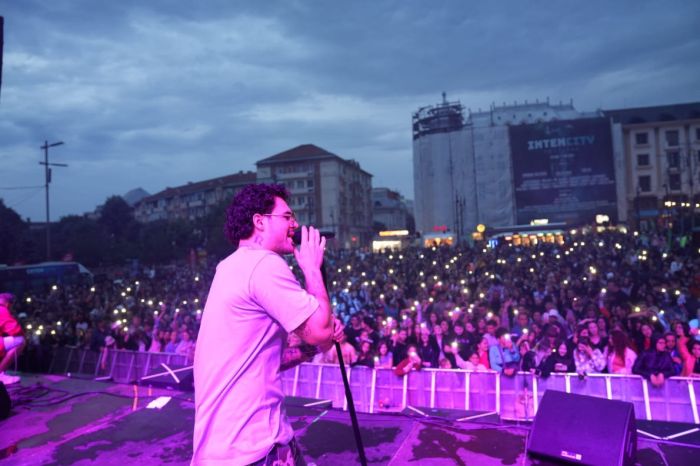
Cultural tours in Europe offer diverse experiences tailored to specific interests. Whether you’re an art enthusiast, a history buff, a music lover, or a culinary connoisseur, there’s a tour designed to cater to your passions.
Art and Architecture
- Louvre Museum and Paris Art Scene: Explore the iconic Louvre, home to masterpieces like the Mona Lisa and Venus de Milo. Delve into the vibrant art scene of Paris, visiting galleries and studios.
- Florence Art Immersion: Immerse yourself in the Renaissance heart of Florence, visiting the Uffizi Gallery, the Accademia, and the Duomo, showcasing works by Michelangelo, Da Vinci, and Botticelli.
- Gaudi’s Barcelona: Discover the architectural genius of Antoni Gaudí in Barcelona, exploring his masterpieces like the Sagrada Familia, Park Güell, and Casa Batlló.
History and Heritage
- Ancient Rome and Vatican City: Walk through the ruins of the Roman Forum, the Colosseum, and the Pantheon. Visit the Vatican City, exploring St. Peter’s Basilica and the Vatican Museums.
- Berlin Wall and Cold War History: Trace the history of the Berlin Wall and the Cold War era, visiting Checkpoint Charlie, the East Side Gallery, and the DDR Museum.
- WWII Battlefields and Memorials: Explore the battlefields of Normandy, visit the D-Day landing beaches, and pay respects at the American Cemetery and Memorial.
Music and Performing Arts
- Vienna Opera and Classical Music: Attend a performance at the Vienna State Opera, renowned for its world-class productions. Visit the Musikverein and enjoy a concert by the Vienna Philharmonic.
- London Theater District: Immerse yourself in the vibrant theater scene of London’s West End, catching a performance in one of its renowned theaters.
- Prague Classical Music Festival: Experience the beauty of classical music in Prague, attending concerts in historic venues like the Rudolfinum and the Clementinum.
Cuisine and Gastronomy
- French Culinary Adventure: Indulge in the flavors of French cuisine, visiting markets, cooking classes, and Michelin-starred restaurants in Paris and the countryside.
- Italian Food and Wine Tour: Explore the culinary delights of Italy, visiting vineyards, cheesemakers, and trattorias in Tuscany or the Amalfi Coast.
- Spanish Tapas and Paella: Experience the vibrant food culture of Spain, tasting tapas in Barcelona, learning to cook paella in Valencia, and exploring local markets.
Benefits of Cultural Tours
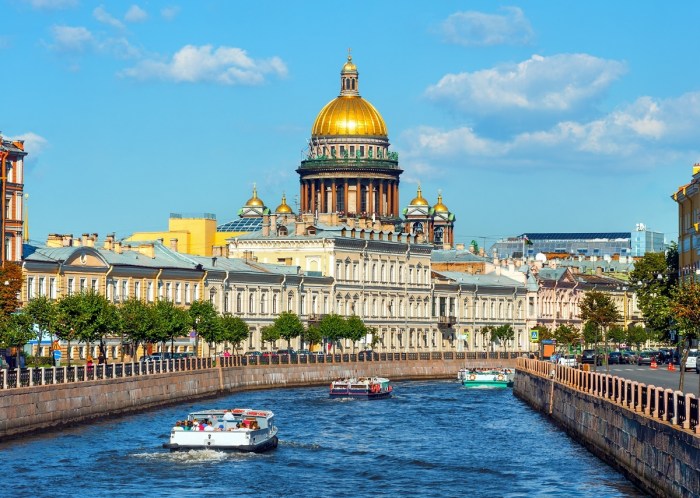
Embarking on cultural tours in Europe offers a myriad of profound benefits that transcend mere sightseeing. These tours provide an immersive experience that deepens our understanding of diverse cultures, fosters appreciation for their unique traditions, and creates lasting memories that enrich our lives.
Enhanced Cultural Understanding
- Cultural tours allow us to interact with locals, learn about their customs, and gain insights into their way of life.
- They facilitate the comprehension of historical events and their impact on the development of European societies.
- By experiencing different perspectives and values, we develop empathy and a broader worldview.
Appreciation for Diversity
- Cultural tours showcase the rich tapestry of Europe’s diverse cultures, from traditional festivals to contemporary art.
- They expose us to a wide range of artistic expressions, culinary traditions, and architectural styles.
- By embracing diversity, we learn to appreciate and respect the uniqueness of each culture.
Lasting Memories
- Cultural tours create unforgettable experiences that become cherished memories.
- They provide opportunities for personal growth, reflection, and the formation of meaningful connections.
- The knowledge and insights gained during these tours stay with us long after the trip has ended.
Cultural Tours for Groups and Individuals: Cultural Tours In Europe
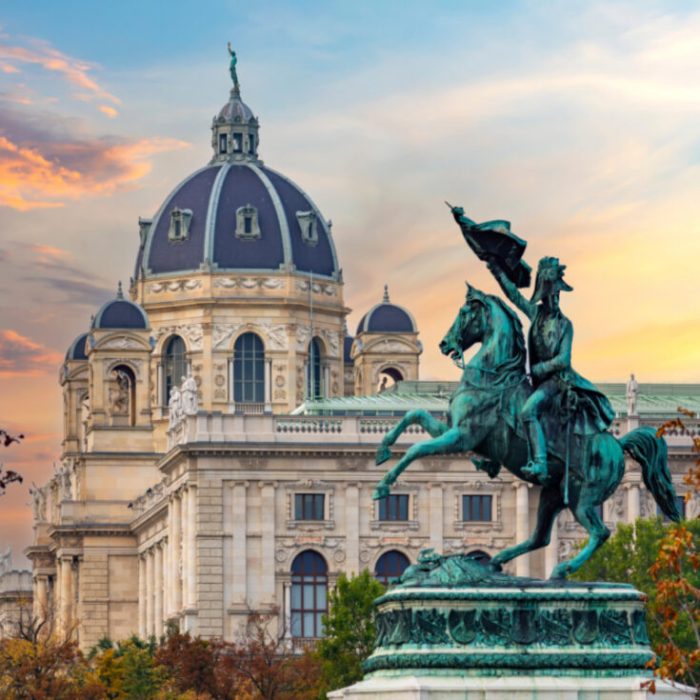
Cultural tours offer immersive experiences that connect travelers with the history, heritage, and traditions of different regions. While group tours provide a structured and cost-effective way to explore, individual tours offer greater flexibility and personalization.
Immerse yourself in Europe’s rich cultural heritage through captivating tours that showcase iconic landmarks and traditions. While planning your itinerary, consider exploring sustainable travel destinations that prioritize environmental preservation and local community well-being. These destinations offer unique experiences that blend cultural exploration with responsible tourism practices, ensuring the preservation of Europe’s cultural tapestry for generations to come.
Advantages and Drawbacks of Group Tours
- Cost-effective: Group tours often offer lower per-person costs due to shared expenses and negotiated rates.
- Structured itinerary: A predetermined itinerary ensures a well-rounded experience, covering key attractions and landmarks.
- Convenience: Group tours handle logistics, including transportation, accommodation, and meal arrangements.
- Socialization: Group tours provide opportunities to meet and interact with fellow travelers.
- Limited flexibility: Itineraries are fixed, leaving little room for spontaneous exploration or customization.
- Crowded experiences: Large group sizes can lead to crowded attractions and impersonal interactions.
li>Less personalization: Group tours cater to a broader audience, so individual interests may not be fully accommodated.
Advantages and Drawbacks of Individual Tours
- Flexibility: Individual tours allow for complete customization of the itinerary, pace, and activities.
- Personalized experiences: Tailored tours can focus on specific interests, preferences, and dietary restrictions.
- Privacy: Individual tours offer exclusive access to guides and attractions, eliminating crowds and distractions.
- Immersion: Extended stays and local interactions foster deeper cultural understanding and connections.
- Higher cost: Individual tours are typically more expensive due to personalized arrangements and private services.
- Logistics: Travelers are responsible for managing transportation, accommodation, and other arrangements.
- Limited socialization: Individual tours offer fewer opportunities to connect with other travelers.
Online Resources for Cultural Tours
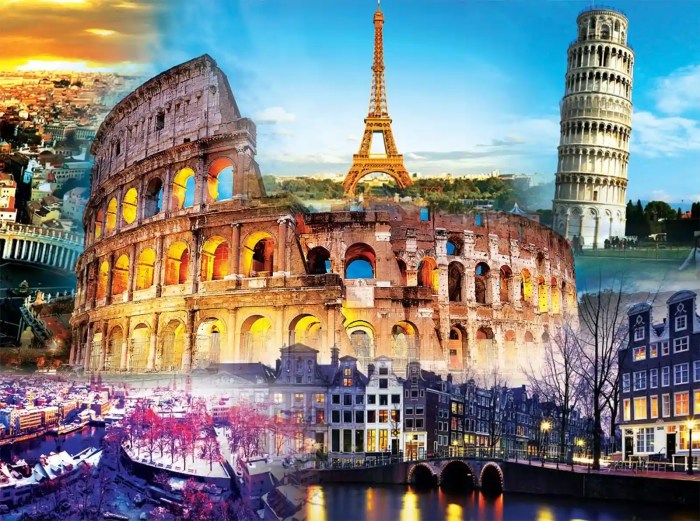
Planning a cultural tour in Europe can be made easier with the help of reputable online resources. These platforms provide travelers with a wide range of tour options, detailed information, and the ability to book their tours conveniently.
Some of the top online resources for cultural tours in Europe include:
Websites
- Viator: A leading online marketplace offering a vast selection of cultural tours in Europe, from guided city walks to multi-day excursions.
- GetYourGuide: Another popular marketplace with a wide range of cultural tours, including skip-the-line tickets and unique experiences.
- Intrepid Travel: A reputable tour operator specializing in small-group adventures and cultural immersion experiences.
Travel Agencies
- Rick Steves’ Europe: A renowned travel agency offering guided tours led by Rick Steves, a renowned travel expert.
- Tauck Tours: A premium tour operator known for its high-quality cultural tours and exceptional customer service.
- EF Educational Tours: A leading provider of educational tours for students and adults, with a focus on cultural experiences.
Responsible Cultural Tourism
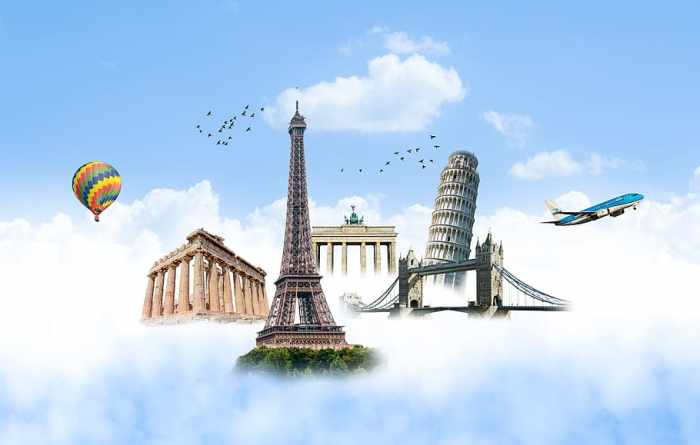
Responsible cultural tourism is a mindful and ethical approach to traveling that prioritizes minimizing negative impacts on the environment, supporting local communities, and preserving cultural heritage. In Europe, responsible cultural tourism is particularly important due to the region’s rich and diverse cultural tapestry.
Here are some principles and tips for practicing responsible cultural tourism in Europe:
Minimize Environmental Impact
- Choose eco-friendly transportation options, such as trains or buses, whenever possible.
- Reduce waste by bringing reusable water bottles and shopping bags.
- Dispose of waste properly and avoid littering.
- Respect local wildlife and avoid disturbing natural habitats.
Support Local Communities
- Stay in locally-owned accommodations and eat at local restaurants.
- Purchase souvenirs and crafts from local artisans.
- Engage with local people and learn about their culture and traditions.
- Support local organizations that promote cultural preservation and community development.
Preserve Cultural Heritage
- Respect historical sites and monuments, and avoid touching or damaging them.
- Follow designated paths and avoid disturbing sensitive areas.
- Learn about local customs and traditions before visiting cultural sites.
- Avoid buying or trading artifacts that may have been illegally obtained.
Outcome Summary
As you bid farewell to Europe, you will carry with you not only souvenirs and photographs but also a profound appreciation for the continent’s cultural heritage. The experiences you have had, the stories you have heard, and the connections you have made will forever enrich your understanding of the world and your place within it.
So, embrace the opportunity to delve into the cultural tapestry of Europe. Allow its history, art, and traditions to captivate your imagination and create memories that will last a lifetime.
Key Questions Answered
What are the most popular cultural destinations in Europe?
Some of the most popular cultural destinations in Europe include Paris, Rome, London, Florence, and Barcelona. These cities are home to iconic landmarks, world-renowned museums, and a vibrant cultural scene.
What types of cultural tours are available in Europe?
There are a wide variety of cultural tours available in Europe, including guided tours, self-guided tours, and immersive experiences. Guided tours offer the benefit of expert insights and historical context, while self-guided tours provide greater flexibility and independence.
How can I plan a cultural tour in Europe?
To plan a cultural tour in Europe, start by choosing a destination that aligns with your interests. Research different tour operators and compare their itineraries and prices. Consider factors such as duration, group size, and budget.